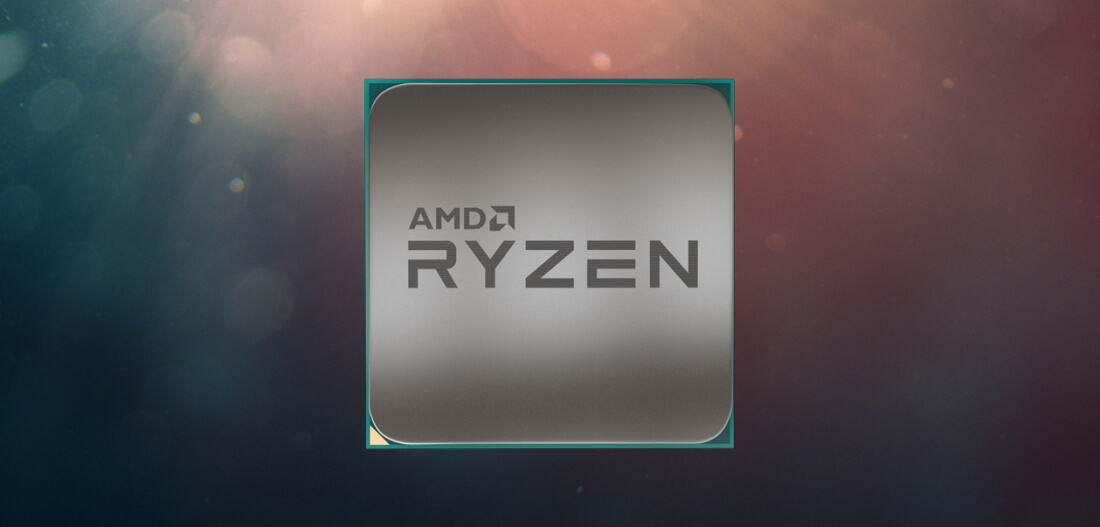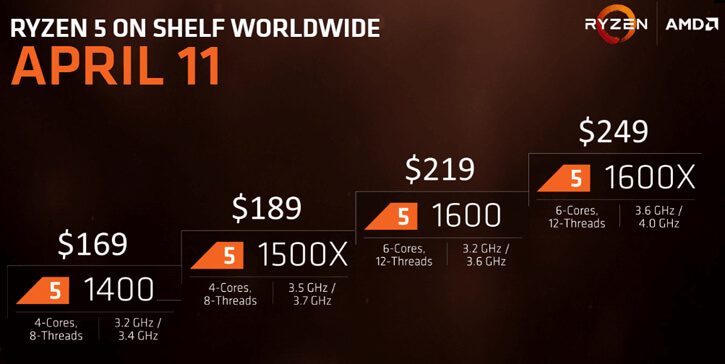
The Ryzen 5 series of processors from AMD does not even hit store shelves until next Tuesday, but that has not stopped Antonline, from selling the CPUs from a sample lot. Forbes reported that early reviews of the Ryzen 5 1600 have already surfaced stating that it outperforms the Intel Core i7-7700K. Even though the quad-core 7700K is clocked at a base of 4.2 GHz, the Ryzen 5 was able to beat it with its 6-core/12-thread architecture clocking at 3.2 GHz. In fact, the Intel processor could not even keep up when it was overclocked to 4.9 GHz.
Speaking of overclocking, the boys over at HardOCP were curious how far the new Ryzen 5 CPUs could be pushed. So they too decided to take advantage of the available samples and run them through their water-cooled unit.
The Ryzen 5 series comes in four flavors the quad-core/8-thread 1400 and 1500X, and the 6-core/12-thread 1600 and 1600X. HardOCP purchased two 1400 and two 1600 to put through stress testing. All of the processors have a base clock speed of 3.2 GHz.
First, they tested the 1600 CPUs. After hours of testing, the CPU was running stable at 4.0 GHz using 3200 MHz RAM. The core voltage was set to 1.45 volts and level 5 load-line calibration. Both Ryzen 1600s worked identically.
They then tested the 1400 processors. The first was stable at 3.9 GHz running at 1.4 volts and an LLC at level 2. The second one they really tried to push to 4.0 GHz, but it would only operate at that speed for less than an hour. They got it stable at 3.975 GHz with a 1.45 v core and at LLC 5.
All of these overclocked tests were pushing the CPUs to their absolute limits. All threads were running a full load and the heat produced was high even with water cooling. The 1400 units were operating in a temperature range of 57-67 Celsius, and the 1600s were around 70-73 C.
HardOCP stated that “Once you get past 3.8 GHz on these processors, the voltage usage and heat emitted just gets exponential with them. So they get very hot, very quickly,” so you would be better of giving up that extra 100 MHz.
Overall, the testers were more pleased with the Ryzen 5 1600. They said that the 1600s were more consistent and easier to set up and get stable. However, they recommend that overclockers be sure to have their BIOS updated because they have experienced buggy issues involving RAM.

Ryzen 5 series will hit store shelves April 11, but if you cannot wait that long Antonline is still selling them on Ebay for $180 for the 1400 and $232 for the 1600.
Check out TechSpot's full review of the Ryzen 5 1600X and 1500X coming up next Tuesday after the official embargo lifts.
https://www.techspot.com/news/68855-amd-ryzen-5-can-stably-overclocked-4-ghz.html